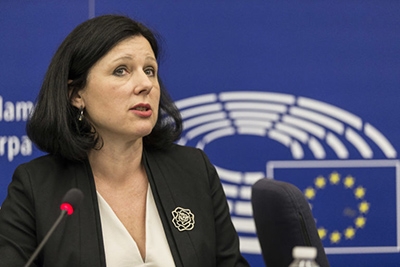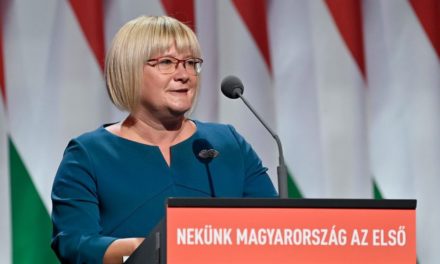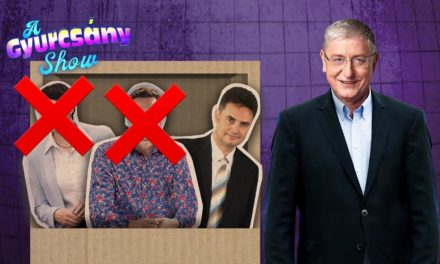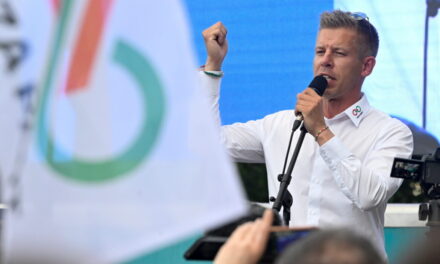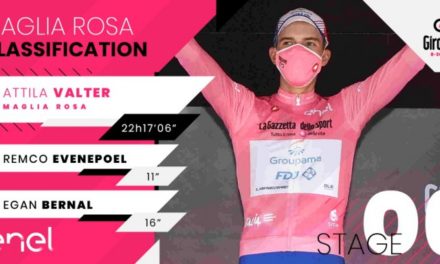Věra Jourová, EU Commissioner for Values and Transparency, Vice-President of the EC, gave an interview to Media1. The discussion was prompted by the proposal that would give European media freedom an EU framework. Jourová does see the problems that exist in the field of media in Hungary, but according to her, the draft decree on media freedom is not about a single country.
"Of course, we see a wide range of problems in Hungary, from the dangerous media concentration to the unfair distribution of state advertisements to the public service media under political influence," said the politician.
He later explained that the purpose of the law on media freedom "is to provide guarantees to Europeans in all countries, so that the media is freed from political control and journalists can do their work more safely".
Jourová emphasized that their vision is clear, "because the media must be independent and work without fear and bias. This is how you can fulfill your role, this is how you can hold the authorities accountable, and this is how you can be the guardian of democracy".
Here are the details:
the legislation requires Member States to respect the editorial freedom of all media;
proposes measures to deal with the unfair distribution of state resources allocated to the media:
the legislation ensures that the distribution of such government advertisements to the media is transparent, proportionate and non-discriminatory;
it is also important - the EU commissioner emphasized - that national authorities must now also assess the impact of media concentrations on the pluralism and independence of the media.
"The new European media supervisory body must be consulted, and it will be able to express an opinion on media mergers that have an impact on the internal market, or if there is no evaluation at the national level," he said later.
As for execution
The law on media freedom is a regulation, which means that it is directly applicable in all Member States. “This means that alleged violations can be brought before national courts. The European Media Services Supervisory Board, together with the European Commission, ensures the consistent application of the new legislation.
In the most serious cases, the Commission can intervene using the powers provided by the Treaties, including the initiation of infringement proceedings".
According to Jourová, today they face a multitude of national rules that do not provide a uniform level of protection. This legal act will be a kind of safety net, he believed.
2022Plus:
The media is quite a complex structure in terms of technical, technological and content provision. But mainly, as we know, the media is the fourth branch of power. In general, we talk about two types of media: public service and commercial interfaces. All EU countries have media regulations, and these laws are usually adopted by parliaments with a qualified majority. I don't even quite understand why, let's say, a cool commercial television should receive state funds? Why would it be mandatory to show state advertisements there? In any case, the governments have taken advantage of this opportunity so far, since there are viewers who can only be reached in this way. Obviously, in the case of commercial media striving for continuous deregulation, which usually create cross-border capital and media concentrations (for example, RTL), it is worth tightening up on market manifestations.
But perhaps it is not by chance that I feel that this draft legislation is not aimed at the commercial media at all, but rather about new federalist ideas, through which pressure can be exerted on governments as to what topics and to what extent they should include them in their programs in the future and how and by whom they will have to be edited according to the EU's taste. (cf. LGBTQ, BLM, multicultural, rainbow)
By the way, I recommend to Jourova the BBC's guidelines for public service issues, just so she doesn't have to reinvent hot water.
Source and full article: Mandiner
Featured Image: Facebook

